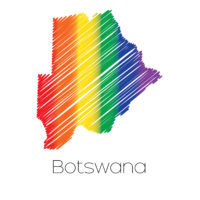Botswana’s High Court ruled on Tuesday to overturn colonial-era laws that criminalized homosexuality, a decision hailed by activists as a significant step for gay rights on the African continent.
“Human dignity is harmed when minority groups are marginalized,” Botswana’s High Court Judge Michael Leburu said as he delivered the judgment, adding that laws that banned gay sex were “discriminatory.”
Three judges voted unanimously to revoke the laws, which they said conflicted with Botswana’s Constitution.
“Sexual orientation is not a fashion statement,” Judge Leburu added. “It is an important attribute of one’s personality.”
The small courtroom in Gaborone, the capital, was packed with activists on Tuesday, some draped in the rainbow flag of the L.G.B.T. movement.
“It is a historical moment for us,” said Matlhogonolo Samsam, a spokeswoman for Lesbians, Gays and Bisexuals of Botswana, a gay rights group. “We are proud of our justice system for seeing the need to safeguard the rights of the L.G.B.T. community.”
“We still can’t believe what has happened,” Anna Mmolai-Chalmers, the chief executive of the gay rights group, said as celebrations began outside the courtroom. “We’ve been fighting for so long, and within three hours your life changes.”
The laws had been challenged by an anonymous gay applicant, identified in court papers only as L.M. In a written statement, read by lawyers in the courtroom, the applicant said: “We are not looking for people to agree with homosexuality but to be tolerant.”
Homosexuality has been illegal in Botswana since the late 1800s, when the territory, then known as Bechuanaland, was under British rule. Section 164 of the country’s penal code outlaws “unnatural offenses,” defined as “carnal knowledge against the order of nature.”
NYTimes.com by Kimon de Greef, June 11, 2019
Click here to read the entire article.
The post Botswana’s High Court Decriminalizes Gay Sex appeared first on Time For Families.
Source: Time for Families



